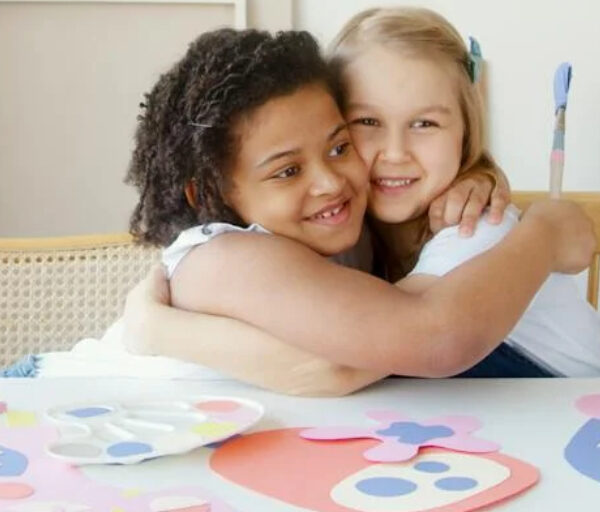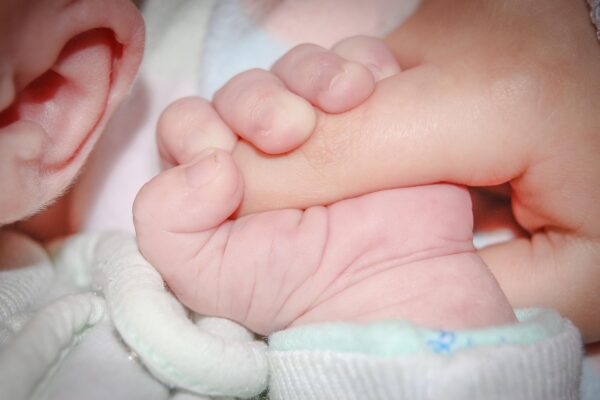The Fear of Rejection!
The fear of rejection is born of a thought that gives rise to a feeling.
It becomes a potent force when we act on it.
Last week, we explored a highly relevant topic: loneliness! You may check it out here: It is not about you! – BLOG – www.akesatia.com Logically, we cannot broach the subject of loneliness without addressing rejection. Because feeling lonely often surfaces when one feels rejected, which leads to a fear of rejection. Here, we are not referring to rational fear that causes one to stop in her tracks when a speeding vehicle approaches, or primal fear like arachnophobia, aka the extreme fear of spiders. We mean an irrational fear that surfaces and wreaks havoc by rendering one powerless.
Let’s explore the fear of rejection!
Behind my curtain of the fear of rejection
First, I must come clean. 😊
I am intimately familiar with the fear of rejection because I have strong perfectionist tendencies. And as one might infer, the greatest fear of a perfectionist is to appear suboptimal and less than. Therefore, signs of imperfection are a bubble perfectionists fear bursting, and once ruptured, it leads to a downward spiral. Because to a perfectionist, weaknesses or shortcomings lead to disappointment and open the door to rejection from self, others, or both.
Saturated with an ample dose of perfectionist tendencies, I have spent a lifetime navigating the sphere of the fear of rejection. Thanks to self-reflection, friends, therapists, and coaches, I now realize how limiting and damaging this silent fear can be. Indeed, the fear of rejection leads one to shut doors without knowing what is on the other side, resulting in missed opportunities and denial of joy and fulfillment – all based on a thought!
Rejection is an equal opportunity visitor!
As you read this, you might be thinking: Aké, yes, perfectionism is a weakness, and I am glad you are working on it! Fortunately, perfectionism is a weakness I do not have! I am very comfortable with my imperfections. I know my weaknesses. And I air my dirty laundry freely – to whomever and whenever!
If this is how you feel, allow me to gently steer you back to the topic at hand., i.e., the fear of rejection! 😊
Certainly, perfectionists do not have a monopoly on the fear of rejection. For this reason, you would not hear someone say: Please reject me and deny all of my earnest requests. You will not hear this because rejection or denial is disappointing at best. And we all experience rejection by the simple utterance of the word, NO! Because no symbolizes denial, which we often equate with unwanted messages like “You are not good enough.” Or “You are not worth it!”
Undeniably, the fear of rejection is common to all at varying degrees, and it is worth peeking behind the curtain to determine how to free ourselves from its negative grip.
Before we go further, let us level-set on the meaning of rejection!
What is this dreaded fear?
The word reject originates from the early 15th-century term rejecten, meaning to eject, set aside, or block from inheritance. In the late 15th century, the word reject was linked to the Latin term rejectus, meaning to throw away, cast away, or vomit. reject | Search Online Etymology Dictionary (etymonline.com)
The words used to define the term reject are horrid and epitomize how devastating rejection truly feels.
Unchecked, feeling rejected might lead one to act defensively, out of character, and take actions they later regret. But this is not just a philosophical discourse. Indeed, it is backed by science, as studies show that the same areas of the brain become activated when we experience rejection as when we experience physical pain. This is why rejection hurts so much. 10 Surprising Facts About Rejection | Psychology Today
For this reason, it is vital to understand what causes the feeling and promotes the fear of it.
First, it is helpful to remember that feeling rejected is a feeling. – One that might be reflective of reality or a dark mirage that obscures reality. The fear of rejection reflects a perspective, and our opportunity is to prevent our perception from negatively impacting our self-worth and determining our next steps.
To make this real, I’ll share a personal story.
An early introduction!
Do you remember the first time you felt rejected?
I do! And the memory is so vivid one might think it occurred yesterday!
When I was six years old, I changed schools and started attending a school known for having great teachers, high test scores, and well-behaved pupils. After being at the school for a few weeks, which seemed like forever, I noticed and observed two of my classmates. They were two girls who were part of the cool kids’ crew. These girls were so cool that they kept to themselves, always hung out together, dressed in the latest trends, got excellent grades, and emitted a holier-than-thou vibe as they gracefully walked around the schoolgrounds. Being new to the school, I wanted to befriend them but did not want to ask them to play with me. That would seem desperate and very unbecoming, I thought! Hmmm! The games we play from a tender age! 😉
To build a friendship, I preferred to take a circuitous route and ensured I was tactfully within their sight in class and at recess. Then, on a sunny afternoon in the middle of the week, both girls approached me and asked if I would like to have lunch with them. Nonchalantly, I responded: Sure! I am eating my lunch now. You can join me. Instantly, our friendship took root. Unfortunately, the good times were short-lived!
A crack in the Earth’s surface!
A few days later, on a sunny afternoon, while I was having lunch with my new friends, one of them said I shoved her plate. I was confident I had not touched her plate, and when I glanced at it, it was on the desk in front of her as she placed it – or so I thought. Therefore, I stated that I did not shove her plate. She insisted that I did, and I resisted.
To my surprise, my response vexed her greatly, and she asked our other friend to walk with her out of the classroom, where they spent the rest of recess together. Instantly, I felt shunned! It seemed a crack had formed in the earth’s surface! 😉
Distressed by the incident, I spent the rest of recess alone in the corner of the classroom, staring out the window, watching other kids play hopscotch, and wondering if I would ever laugh again. Fortunately, a couple of hours later, my parents picked me up from school, and when we got home, I shared the ordeal with my mom. She encouraged me to apologize, make new friends, and play with other kids. I considered her advice and heeded the pieces that appealed to me. Specifically, I chose to make new friends and play with other kids. However, convinced I did nothing wrong, I felt there was no need to offer an apology.
Fixing the crack in the Earth’s surface!
Surprisingly, three days later, the two girls who wanted nothing to do with me because one said I shoved her plate approached me, apologized for ignoring me, and asked me to hang out with them. As if nothing ever happened, we exchanged sappy apologies, our friendship was reborn, and our bond became ionic as it had survived an earthquake! And we remained best friends until I moved to a new school a few years later.
Perhaps you experienced something similar in your early years, and my story rings a bell!
However, as adults, we might dismiss such occurrences as childish, but there are distinct similarities in adult interactions. Of course, as adults, we use more sophisticated terminology to describe this behavior. One such term is canceling, aka ostracizing, boycotting, or shunning those deemed to have acted or spoken unacceptably. Cancel culture -Wikipedia But despite the wordplay, the impact remains the same. – Canceling, snubbing, shunning, and the like all make one feel rejected!
Fortunately, I gained much more from my earth-shattering childhood experience than company at recess. Also, I learned a vital lesson that served me in my adult years.
The meaning of an apology
From my six-year-old experience, I learned about the power of perception and the importance of a sincere apology. On that fateful day, when my friends left me and walked out of the classroom during recess, I perceived their departure as a pronouncement that I was a terrible friend they wanted nothing to do with. However, when we made up, I realized my perception was wrong. – When my friends apologized, one informed me that she walked out because she was upset that I did not apologize for hurting her feelings. And the other girl walked out to support her because she was loyal, and they were best friends.
While I wished I had earlier known my friends’ reasoning for leaving me in the classroom on that dreaded day, all was not lost because I learned a valuable lesson from their apologies. I realized that I could have smoothened over the misunderstanding much sooner with three golden words: I am sorry.
Remarkably, even as a little kid, I knew that I did not apologize because I did not believe I was in the wrong. And I did not want to be vulnerable. But as I grew older, I learned that one does not apologize because one carries all the blame. One apologizes because they hurt another, value the connection, and establishing cohesion is more valuable to them than being right.
A lesson learned and a seed planted!
Though I moved on from my 6-year-old earth-shattering incident, I never forgot the lonely feeling of sitting alone in the classroom that sunny afternoon. As a result, the fear of rejection was ever-present in my heart and mind as I grew older. Therefore, the seed surfaced unexpectedly with negative consequences until I faced it years later in therapy as an adult.
Friend, feeling rejected is born out of our interpretation of a situation. But regardless of whether one intended to reject us, it is powerful to understand why others behave in ways that make us feel rejected.
And we will delve into this in the future!
Reflect and Imagine
In the meantime, here’s a thought worth pondering:
Is a relationship strained because the other person feels hurt by something you did or said? Could an apology help mend the situation? If so, consider apologizing.
It is worth remembering that an apology is not an admission of guilt in a court of law that requires judgment. An apology is an expression of love that enables reconciliation. And a sincere apology shows that one cares about another and values the connection.
Until next time, stay well.
For you and to you,
Aké















lend 仮想 通貨
September 4, 2025Your point of view caught my eye and was very interesting. Thanks. I have a question for you.
admin
September 5, 2025Thank you!! I am happy to help.